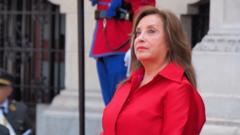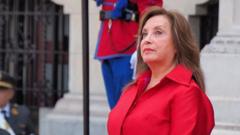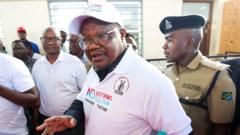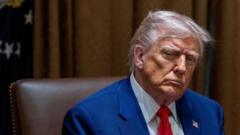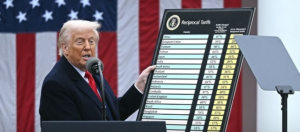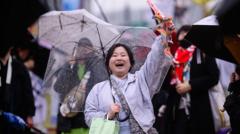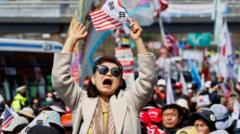A power struggle in South Korea deepens as the acting president finds himself under fire, sparking a contentious political atmosphere.
South Korea's Political Crisis Escalates: Impeachment Vote Looms

South Korea's Political Crisis Escalates: Impeachment Vote Looms
As President Yoon Suk Yeol's impeachment trial approaches, his acting successor Han Duck-soo faces a challenging vote of his own.
As the nation grapples with a political crisis, opposition lawmakers are set to vote on Friday for the impeachment of Han Duck-soo, South Korea’s acting president. Mr. Han stepped into the acting role earlier this month following the impeachment and suspension of President Yoon Suk Yeol, who was accused of introducing military rule for the first time in 45 years.
In a rapid turn of events, the opposition's move to impeach Mr. Han arises after his refusal to appoint judges to the Constitutional Court. This court is crucial in deciding the fate of President Yoon, whose trial is set to commence this Friday. The court currently comprises only six justices, creating a precarious situation where a single dissenting vote can overturn the impeachment.
During a televised speech, Mr. Han announced his decision to delay judicial appointments, stating that he would await an agreement between the parties on whether he held the authority as acting president. The ongoing tension highlights the divided political landscape, with the opposition coalition pushing for action while the ruling People Power Party insists that only a fully-elected president can make such appointments.
The situation promises to evolve further as the nation watches closely how these parliamentary votes unfold and the implications they may hold for South Korea's governance structure.
In a rapid turn of events, the opposition's move to impeach Mr. Han arises after his refusal to appoint judges to the Constitutional Court. This court is crucial in deciding the fate of President Yoon, whose trial is set to commence this Friday. The court currently comprises only six justices, creating a precarious situation where a single dissenting vote can overturn the impeachment.
During a televised speech, Mr. Han announced his decision to delay judicial appointments, stating that he would await an agreement between the parties on whether he held the authority as acting president. The ongoing tension highlights the divided political landscape, with the opposition coalition pushing for action while the ruling People Power Party insists that only a fully-elected president can make such appointments.
The situation promises to evolve further as the nation watches closely how these parliamentary votes unfold and the implications they may hold for South Korea's governance structure.





